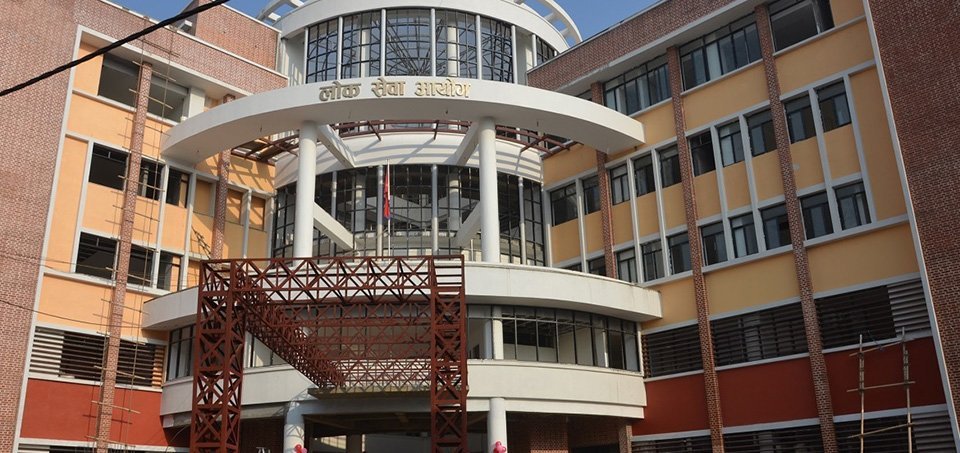
Public Service Commission Recommends 2,688 Candidates in FY 2080/81
The Public Service Commission (PSC), which began operations on Bhadra 18, 2008 BS by inviting applications for six positions, recommended 2,688 eligible candidates for government service in the fiscal year 2080/81 alone.
A total of 3,660 positions were advertised, drawing 473,490 applications. The increasing number of applicants indicates a growing trust in the Commission as it enters its 75th year. However, maintaining that trust remains a major challenge, as noted by Commission officials.
Limits of the Selection System
PSC Chairperson Madhav Prasad Regmi stated that the selection process reflects only a small portion of a candidate’s capability.
“Factors like education, social background, and work culture influence a person. Our tests identify only about 10% of an individual's potential.”
According to him, it is the state’s responsibility to build upon this foundation through training and by creating a supportive work environment, strengthening the entire civil service system.
The credibility that the Commission holds today is the result of policy decisions and continuous improvement in its selection practices.
Enhancing Fairness and Credibility
The Commission claims that double coding during answer sheet evaluation ensures complete anonymity, thereby making the selection process impartial and boosting public confidence.
Former PSC member Krishnachandra Jha emphasized the importance of transparency. He highlighted practices such as:
-
Discouraging ad-hoc recruitment in organizations
-
Evaluating Section Officer answer sheets centrally
-
Reforming exams for second and third class positions
These efforts have contributed significantly to the Commission’s growing credibility.
Jha further argued that organizations hiring staff on contract must be discouraged, as it undermines systematic recruitment.
Adapting to Time and Technology
Chairperson Regmi remarked that while past reforms built trust, future efforts must focus on technology and efficient talent selection.
“We’re working to upgrade selection techniques to match the pace of time and ensure we can meet today’s human resource needs.”
Currently, PSC not only manages civil service appointments but also facilitates the recruitment process for around 74 organized institutions.
Since 2072 BS, due to its credibility, the Commission has been entrusted with filling positions in sectors like healthcare and security agencies.
Retention Challenges
PSC spokesperson Geeta Kumari Homegai mentioned that despite a lengthy and costly recruitment process, retaining selected candidates has become a growing challenge.
This issue is more prominent in organized institutions than in traditional civil services.
PSC member Bir Bahadur Rai echoed the concern, adding that the Commission alone cannot address the problem of attrition.
“Many leave for better opportunities, more attractive benefits, or career growth in other institutions. This requires joint efforts.”
The Commission is currently considering joint examinations for similar institutions and a unified system for bank recruitments to reduce exam costs and duration.
Rising Trend of Youth Migration
At the same time, the outflow of young people seeking education and careers abroad is steadily increasing.
More graduates now prefer to settle abroad after completing their studies, thereby limiting the domestic talent pool and increasing the risk of losing top candidates.
Chairperson Regmi stressed the need for better alignment between education and employment.
“To address brain drain, the government, PSC, academic institutions, and organized bodies must collaborate and show that there are real opportunities within Nepal.”
Historical Background
The Public Service Commission was established on Asar 1, 2008 BS, under the Interim Constitution of Nepal 2007 BS, initially under the name "Public Service Commission."
Lok Sewa Aayog

